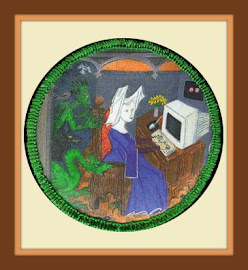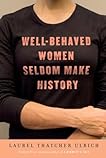 Very interesting. He traces four meals from the soil to the dinner table. A little dense since lots of information was presented--it took me a while to get through. Also an important book to read, I think. It (along with Animal, Vegetable, Mineral: this was a nice flowing narrative, more of a personal memoir) made me think of food and food consumption and the ethics of food in such a different manner. I loved the description of Joel Salatin's farm in Virginia, with his grass fed cattle and his elaborate rotation system. His description of the industrial food chain was also fascinating, as well as the impact of the US goverment's food policies on crops and food prices. And I loved his description of the final meal: eating foods only collected or grown by himself. So, he gets a hunting license, learns to fire a gun, and hunts for wild boar in northern California. And he forages for mushrooms and grows a garden.
Very interesting. He traces four meals from the soil to the dinner table. A little dense since lots of information was presented--it took me a while to get through. Also an important book to read, I think. It (along with Animal, Vegetable, Mineral: this was a nice flowing narrative, more of a personal memoir) made me think of food and food consumption and the ethics of food in such a different manner. I loved the description of Joel Salatin's farm in Virginia, with his grass fed cattle and his elaborate rotation system. His description of the industrial food chain was also fascinating, as well as the impact of the US goverment's food policies on crops and food prices. And I loved his description of the final meal: eating foods only collected or grown by himself. So, he gets a hunting license, learns to fire a gun, and hunts for wild boar in northern California. And he forages for mushrooms and grows a garden.
I started thinking hard about my family's egg farm business and wanted a section of the book devoted to this. Or at least a New Yorker article. He does include a few paragraphs to egg production to say that journalists have a hard time getting into egg farms and that from all accounts, "egg operations are the worst...The American laying hen spends her brief span of days piled together with a half dozen other hends in a wire cage the floor of which four pages of this book could carpet wall to wall. Every natural instinct of this hen is thwarted, leading to a range of behavioral "vices" that can include cannibalizing her cage mates and rubbing her breast agasint the wire mesh until it is completely bald and bleeding." Hmm. I would love to talk to my uncles about these kinds of ideas, but it might not be received well. I wonder if they have had protests, letters, etc about the way the chickens are treated. The problems of egg production are about scalability. It would be impossible to produce the eggs they do with free range chickens. And it would make eggs a lot more expensive. But, Pollan claims they would be more nutritious.
All very interesting. I am going to look into some locally produced meats, just to get a sense of price difference, and maybe we can make a few strategic moves in this direction. I really love the idea of buying a lot of beef, say, a half cow, all from one single cow that has lived a good cow-life, freezing it, and then being extra-grateful for this one cow and the food that she has given us.
And I am recommitted to visiting the farmer's market once a week during the summer. We'll go this Thursday.
I've been thinking about the committment I would need to make to go all the way with some of these food consumption ideas. With eating locally, with not eating meat that has been produced in CAFO's (confined animal feeding operations), or with going organic. I have decided that there is no way we can do everything, but that we can do something. I need to think more about strategic priorities. What do I feel strongest about? And then we can do a few things here and there. Hopefully, the changes we make in where we spend our food dollars will combine with other tiny drops in the bucket to influence the larger food production process.
Monday, June 09, 2008
Omnivore's Dilemma
Labels:
Off the Stacks
Subscribe to:
Post Comments (Atom)












1 comment:
That's a good point that even small changes could make a difference. I tend to get overwhelmed even thinking about it, but maybe if I focused on doing just a few things toward that end...
We used to have cows in the freezer. It's amazing how much better they tasted than what you buy at the grocery store. I wouldn't eat beef for years after I left the farm because I couldn't stand the taste. I'm still picky about it.
Post a Comment